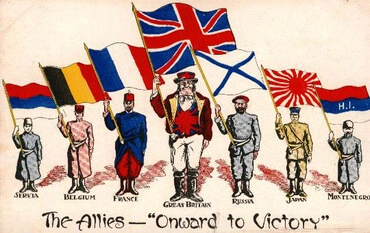1
Moïse adressa encore ces paroles à tout Israël:
2
Aujourd'hui, leur dit-il, je suis âgé de cent vingt ans, je ne pourrai plus sortir et entrer, et l'Eternel m'a dit: Tu ne passeras pas ce Jourdain.
3
L'Eternel, ton Dieu, marchera lui-même devant toi, il détruira ces nations devant toi, et tu t'en rendras maître. Josué marchera aussi devant toi, comme L'Eternel l'a dit.
4
L'Eternel traitera ces nations comme il a traité Sihon et Og, rois des Amoréens, qu'il a détruits avec leur pays.
5
L'Eternel vous les livrera, et vous agirez à leur égard selon tous les ordres que je vous ai donnés.
6
Fortifiez-vous et ayez du courage! Ne craignez point et ne soyez point effrayés devant eux; car l'Eternel, ton Dieu, marchera lui-même avec toi, il ne te délaissera point, il ne t'abandonnera point.
7
Moïse appela Josué, et lui dit en présence de tout Israël: Fortifie-toi et prends courage, car tu entreras avec ce peuple dans le pays que l'Eternel a juré à leurs pères de leur donner, et c'est toi qui les en mettras en possession.
8
L'Eternel marchera lui-même devant toi, il sera lui-même avec toi, il ne te délaissera point, il ne t'abandonnera point; ne crains point, et ne t'effraie point.
9
Moïse écrivit cette loi, et il la remit aux sacrificateurs, fils de Lévi, qui portaient l'arche de l'alliance de l'Eternel, et à tous les anciens d'Israël.
10
Moïse leur donna cet ordre: Tous les sept ans, à l'époque de l'année du relâche, à la fête des tabernacles,
11
quand tout Israël viendra se présenter devant l'Eternel, ton Dieu, dans le lieu qu'il choisira, tu liras cette loi devant tout Israël, en leur présence.
12
Tu rassembleras le peuple, les hommes, les femmes, les enfants, et l'étranger qui sera dans tes portes, afin qu'ils t'entendent, et afin qu'ils apprennent à craindre l'Eternel, votre Dieu, à observer et à mettre en pratique toutes les paroles de cette loi.
13
Et leurs enfants qui ne la connaîtront pas l'entendront, et ils apprendront à craindre l'Eternel, votre Dieu, tout le temps que vous vivrez dans le pays dont vous prendrez possession, après avoir passé le Jourdain.
14
L'Eternel dit à Moïse: Voici, le moment approche où tu vas mourir. Appelle Josué, et présentez-vous dans la tente d'assignation. Je lui donnerai mes ordres. Moïse et Josué allèrent se présenter dans la tente d'assignation.
15
Et l'Eternel apparut dans la tente dans une colonne de nuée; et la colonne de nuée s'arrêta à l'entrée de la tente.
16
L'Eternel dit à Moïse: Voici, tu vas être couché avec tes pères. Et ce peuple se lèvera, et se prostituera après les dieux étrangers du pays au milieu duquel il entre. Il m'abandonnera, et il violera mon alliance, que j'ai traitée avec lui.
17
En ce jour-là, ma colère s'enflammera contre lui. Je les abandonnerai, et je leur cacherai ma face. Il sera dévoré, il sera la proie d'une multitude de maux et d'afflictions, et alors il dira: N'est-ce point parce que mon Dieu n'est pas au milieu de moi que ces maux m'ont atteint?
18
Et moi, je cacherai ma face en ce jour-là, à cause de tout le mal qu'il aura fait, en se tournant vers d'autres dieux.
19
Maintenant, écrivez ce cantique. Enseigne-le aux enfants d'Israël, mets-le dans leur bouche, et que ce cantique me serve de témoin contre les enfants d'Israël.
20
Car je mènerai ce peuple dans le pays que j'ai juré à ses pères de lui donner, pays où coulent le lait et le miel; il mangera, se rassasiera, s'engraissera; puis il se tournera vers d'autres dieux et les servira, il me méprisera et violera mon alliance;
21
quand alors il sera atteint par une multitude de maux et d'afflictions, ce cantique, qui ne sera point oublié et que la postérité aura dans la bouche, déposera comme témoin contre ce peuple. Je connais, en effet, ses dispositions, qui déjà se manifestent aujourd'hui, avant même que je l'aie fait entrer dans le pays que j'ai juré de lui donner.
22
En ce jour-là, Moïse écrivit ce cantique, et il l'enseigna aux enfants d'Israël.
23
L'Eternel donna ses ordres à Josué, fils de Nun. Il dit: Fortifie-toi et prends courage, car c'est toi qui feras entrer les enfants d'Israël dans le pays que j'ai juré de leur donner; et je serai moi-même avec toi.
24
Lorsque Moïse eut complètement achevé d'écrire dans un livre les paroles de cette loi,
25
il donna cet ordre aux Lévites qui portaient l'arche de l'alliance de l'Eternel:
26
Prenez ce livre de la loi, et mettez-le à côté de l'arche de l'alliance de l'Eternel, votre Dieu, et il sera là comme témoin contre toi.
27
Car je connais ton esprit de rébellion et la roideur de ton cou. Si vous êtes rebelles contre l'Eternel pendant que je suis encore vivant au milieu de vous, combien plus le serez-vous après ma mort!
28
Assemblez devant moi tous les anciens de vos tribus et vos officiers; je dirai ces paroles en leur présence, et je prendrai à témoin contre eux le ciel et la terre.
29
Car je sais qu'après ma mort vous vous corromprez, et que vous vous détournerez de la voie que je vous ai prescrite; et le malheur finira par vous atteindre, quand vous ferez ce qui est mal aux yeux de l'Eternel, au point de l'irriter par l'oeuvre de vos mains.
30
Moïse prononça dans leur entier les paroles de ce cantique, en présence de toute l'assemblée d'Israël:







